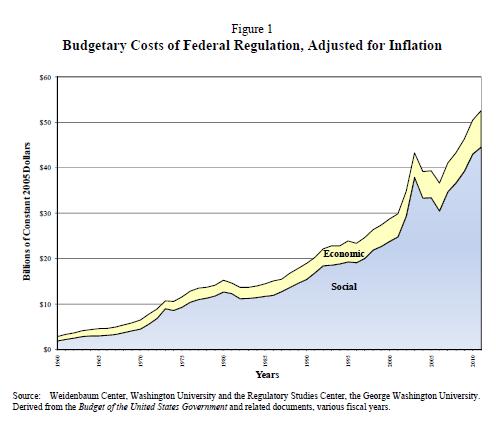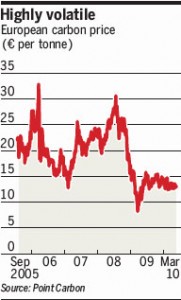With the previous post, Professor Galambos has kicked off this year’s LU Economics Summer Reading Fun, or something like that. Any student (or colleague, or alum) interested in reviewing a book related to economics or LU economics is welcome to submit a book review that we will post right here on the blog.
Here are some suggestions that I am very interested in learning about, but likely won’t read myself:
Brad DeLong and Stephen Cohen, The End of Influence: What Happens When Other Countries Have the Money?
 When you have the money–and “you” are a big, economically and culturally vital nation–you get more than just a higher standard of living for your citizens. You get power and influence, and a much-enhanced ability to act out. When the money drains out, you can maintain the edge in living standards of your citizens for a considerable time (as long as others are willing to hold your growing debts and pile interest payments on top). But you lose power, especially the power to ignore others, quite quickly–though, hopefully, in quiet, nonconfrontational ways. An you lose influence–the ability to have your wishes, ideas, and folkways willingly accepted, eagerly copied, and absorbed into daily life by others. As with good parenting, you hope that by the time this happens those ideas and ways have been so thoroughly integrated that they have become part of what is normal and regular abroad as well as at home; sometimes, of course, they don’t. In either case, the end is inevitable: you must become, recognize that you have become, and act like a normal country. For America, this will be a shock: American has not been a normal country for a long, long time.
When you have the money–and “you” are a big, economically and culturally vital nation–you get more than just a higher standard of living for your citizens. You get power and influence, and a much-enhanced ability to act out. When the money drains out, you can maintain the edge in living standards of your citizens for a considerable time (as long as others are willing to hold your growing debts and pile interest payments on top). But you lose power, especially the power to ignore others, quite quickly–though, hopefully, in quiet, nonconfrontational ways. An you lose influence–the ability to have your wishes, ideas, and folkways willingly accepted, eagerly copied, and absorbed into daily life by others. As with good parenting, you hope that by the time this happens those ideas and ways have been so thoroughly integrated that they have become part of what is normal and regular abroad as well as at home; sometimes, of course, they don’t. In either case, the end is inevitable: you must become, recognize that you have become, and act like a normal country. For America, this will be a shock: American has not been a normal country for a long, long time.
 BP’s stock, which traded at a 52-week high of $62.38 on Jan. 19, 2010, closed on June 1 at $36.52 a share, down 15% on the day. The post-spill sell-off has wiped out some $68 billion of BP’s market value, knocking it down to $114 billion. With the stock now in the cellar, some speculation even has it that BP may attract a buyer.
BP’s stock, which traded at a 52-week high of $62.38 on Jan. 19, 2010, closed on June 1 at $36.52 a share, down 15% on the day. The post-spill sell-off has wiped out some $68 billion of BP’s market value, knocking it down to $114 billion. With the stock now in the cellar, some speculation even has it that BP may attract a buyer. He finds big impacts. The red line in the picture is his estimate of the time series of BP’s stock price without the spill, and the black line is the actual price. Seems like a big effect.
He finds big impacts. The red line in the picture is his estimate of the time series of BP’s stock price without the spill, and the black line is the actual price. Seems like a big effect.

 That’s the
That’s the 
 … is certainly worth a barrel of cure. Instead of having these guys with big yellow boots (I thought only 4-year old boys ran around in public in galoshes out of season), perhaps it would pay to have more egghead types crunching data on safety risk. That was the message I gave in both my classes this week, as we sat down to read Shultz and Fischbeck’s “
… is certainly worth a barrel of cure. Instead of having these guys with big yellow boots (I thought only 4-year old boys ran around in public in galoshes out of season), perhaps it would pay to have more egghead types crunching data on safety risk. That was the message I gave in both my classes this week, as we sat down to read Shultz and Fischbeck’s “
 Just don’t try to sell the kits at Walgreens.
Just don’t try to sell the kits at Walgreens. On the other side of the pond, there actually is a cap & trade system in place, and it is really all over the price. Carbon prices have ranged from €8 to €30, and the volatility can stymie long-term investments. In other words, there is likely to be an inverse relationship between carbon prices and the payoff to greener (or at least lower-carbon) energy sources. If investors don’t believe that carbon prices will be high, then green investments simply won’t be as attractive.
On the other side of the pond, there actually is a cap & trade system in place, and it is really all over the price. Carbon prices have ranged from €8 to €30, and the volatility can stymie long-term investments. In other words, there is likely to be an inverse relationship between carbon prices and the payoff to greener (or at least lower-carbon) energy sources. If investors don’t believe that carbon prices will be high, then green investments simply won’t be as attractive. There seems to be some difference in the moment-to-moment intensity of an auction theory class and that of an actual auction. Especially when the S&P is amidst an epic tank.
There seems to be some difference in the moment-to-moment intensity of an auction theory class and that of an actual auction. Especially when the S&P is amidst an epic tank. Many theories, most famously Max Weber’s essay on the ‘Protestant ethic,’ have hypothesized that Protestantism should have favored economic development. With their considerable religious heterogeneity and stability of denominational affiliations until the 19th century, the German Lands of the Holy Roman Empire present an ideal testing ground for this hypothesis. Using population figures in a dataset comprising 276 cities in the years 1300-1900, I find no effects of Protestantism on economic growth. The finding is robust to the inclusion of a variety of controls, and does not appear to depend on data selection or small sample size. In addition, Protestantism has no effect when interacted with other likely determinants of economic development. I also analyze the endogeneity of religious choice; instrumental variables estimates of the effects of Protestantism are similar to the OLS results.
Many theories, most famously Max Weber’s essay on the ‘Protestant ethic,’ have hypothesized that Protestantism should have favored economic development. With their considerable religious heterogeneity and stability of denominational affiliations until the 19th century, the German Lands of the Holy Roman Empire present an ideal testing ground for this hypothesis. Using population figures in a dataset comprising 276 cities in the years 1300-1900, I find no effects of Protestantism on economic growth. The finding is robust to the inclusion of a variety of controls, and does not appear to depend on data selection or small sample size. In addition, Protestantism has no effect when interacted with other likely determinants of economic development. I also analyze the endogeneity of religious choice; instrumental variables estimates of the effects of Protestantism are similar to the OLS results. That’s the answer. The question is from
That’s the answer. The question is from  So that gets us back to the original question, which is, should we think about the regulatory framework for the current oil spill fiasco in terms of regulating some sort of risk or internalizing an externality? And, does it make a difference which approach we take in terms of the types of regulations we would want?
So that gets us back to the original question, which is, should we think about the regulatory framework for the current oil spill fiasco in terms of regulating some sort of risk or internalizing an externality? And, does it make a difference which approach we take in terms of the types of regulations we would want?